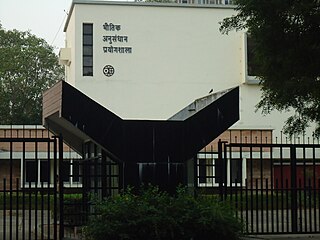Related Research Articles

Solidarity, full name Independent Self-Governing Trade Union "Solidarity", is a Polish trade union founded in August 1980 at the Lenin Shipyard in Gdańsk, Poland. Subsequently, it was the first independent trade union in a Warsaw Pact country to be recognised by the state. The union's membership peaked at 10 million in September 1981, representing one-third of the country's working-age population. Solidarity's leader Lech Wałęsa was awarded the Nobel Peace Prize in 1983 and the union is widely recognised as having played a central role in the end of Communist rule in Poland.

The Polish People's Republic was a country in Central Europe that existed from 1947 to 1989 as the predecessor of the modern Republic of Poland. With a population of approximately 37.9 million near the end of its existence, it was the second most-populous communist and Eastern Bloc country in Europe. A unitary state with a Marxist–Leninist government, it was also one of the main signatories of the Warsaw Pact alliance. The largest city and official capital since 1947 was Warsaw, followed by the industrial city of Łódź and cultural city of Kraków. The country was bordered by the Baltic Sea to the north, the Soviet Union to the east, Czechoslovakia to the south, and East Germany to the west.
Committee of Radio and Television "Polish Radio and Television" was an institution, which managed all stations of Polish Television and Polish Radio in People's Republic of Poland (PRL) and in the Republic of Poland. It was replaced by two separate entities in 1993 - Polish Radio and Polish Television.

Wanda Wasilewska, also known by her Russian name Vanda Lvovna Vasilevskaya, was a Polish and Soviet novelist and journalist and a left-wing political activist. She was a socialist who became also a devoted communist. She fled the German attack on Warsaw in September 1939 and took up residence in Soviet-occupied Lviv and eventually in the Soviet Union. She was the founder of the Union of Polish Patriots there and played an important role in the creation of the 1st Tadeusz Kościuszko Infantry Division. The division developed into the Polish People's Army and fought on the Eastern Front during World War II. Wasilewska was a trusted consultant to Joseph Stalin and her influence was essential to the establishment of the Polish Committee of National Liberation in July 1944 and to the formation of the Polish People's Republic.

Józef Adam Zygmunt Cyrankiewicz was a Polish Socialist (PPS) and after 1948 Communist politician. He served as premier of the Polish People's Republic between 1947 and 1952, and again for 16 years between 1954 and 1970. He also served as Chairman of the Polish Council of State from 1970 to 1972.

An acronym is a word or name consisting of parts of the full name's words. Acronyms are usually formed from the initial letters of words, as in NATO, but sometimes use syllables, as in Benelux, NAPOCOR, and TRANSCO. They can also be a mixture, as in radar and MIDAS.

Monika Olejnik, formally Monika Ewa Wasowska is a Polish radio, newspaper and TV journalist.

Rogatywka is the Polish generic name for an asymmetrical, peaked, four-pointed cap used by various Polish military formations throughout the ages. It is a distant relative of its 18th-century predecessor, the konfederatka, although similar caps have been used by light cavalry since the 14th century. It consists of a four-pointed top and a short peak, usually made of black or brown leather. Although rogatywka in English seems to mean the same as czapka, the word czapka in Polish designates not only rogatywka, but all caps.

The Provisional Government of National Unity was a puppet government formed by the decree of the State National Council on 28 June 1945 as a result of reshuffling the Soviet-backed Provisional Government of the Republic of Poland established by the Polish Workers' Party through inclusion of politicians from the close political sphere of Stanisław Mikołajczyk, the former prime minister of the Polish government-in-exile based in London. Inclusion of the latter group provided an excuse for the Western allies to approve tacitly the fait accompli of Poland becoming part of the Soviet sphere of influence, and to legitimise the Warsaw government while withdrawing their recognition of the Polish government-in-exile.

The Physical Research Laboratory is a National Research Institute for space and allied sciences, supported mainly by Department of Space, Government of India. This research laboratory has ongoing research programmes in astronomy and astrophysics, atmospheric sciences and aeronomy, planetary and geosciences, Earth sciences, Solar System studies and theoretical physics. It also manages the Udaipur Solar Observatory and Mount Abu InfraRed Observatory. The PRL is located in Ahmedabad.

Polo-Cockta is a Polish Coca-Cola-like drink introduced in the 1970s. Polo-Cockta was introduced as a substitute for the original Coca-Cola, which was unavailable in Polish shops due to limited imports from the US to soviet bloc countries. At first it was based on Cockta, a very popular drink from Slovenia.

Eugeniusz Czykwin is a Polish politician. He was elected to Sejm on 25 September 2005, getting 14181 votes in 24 Białystok district as a candidate from the Democratic Left Alliance list.

British Poles, alternatively known as Polish British people or Polish Britons, are ethnic Poles who are citizens of the United Kingdom. The term includes people born in the UK who are of Polish descent and Polish-born people who reside in the UK. There are approximately 700,000 people born in Poland resident in the UK. Since the late 20th century, they have become one of the largest ethnic minorities in the country alongside Irish, Indians, Pakistanis, Bangladeshis, Germans, and Chinese. The Polish language is the second-most spoken language in England and the third-most spoken in the UK after English and Welsh. About 1% of the UK population speaks Polish. The Polish population in the UK has increased more than tenfold since 2001.

Communist propaganda played an important role in the Polish People's Republic, one of the largest and most important satellite states of the Soviet Union following WWII. Together with the use of force and terror it was instrumental in keeping the country's communist government in power and was designed to shape Polish society into a communist one.
Tadeusz Pyka was a former Polish communist politician, who served as a Deputy Prime Minister of Poland. In August 1980, he led a government commission which attempted to end a strike in the Polish city of Gdańsk, but he was replaced on August 21 without an explanation offered by state radio at the time for the change.

Censorship in Communist Poland was primarily performed by the Polish Main Office of Control of Press, Publications and Shows, a governmental institution created in 1946 by the pro-Soviet Provisional Government of National Unity with Stalin's approval and backing, and renamed in 1981 as the Główny Urząd Kontroli Publikacji i Widowisk (GUKPiW). The bureau was liquidated after the fall of communism in Poland, in April 1990.

The Mount Abu InfraRed Observatory (MIRO) is located near the town Mount Abu in the state of Rajasthan, India. The observatory is at an altitude of 1680 metres and is adjacent to Guru Shikhar, highest peak of the Aravalli Range. The 1.2 m infrared telescope at It is the first major facility in India specifically designed for ground-based, infrared observations of celestial objects. Further the low amount of precipitable water vapour at Guru Shikhar makes it a good site for the infrared telescope observations. The site has been found to be good for astronomical observations.

A Polish passport is an international travel document issued to nationals of Poland, and may also serve as proof of Polish citizenship. Besides enabling the bearer to travel internationally and serving as indication of Polish citizenship, the passport facilitates the process of securing assistance from Polish consular officials abroad or other European Union member states in case a Polish consular is absent, if needed.

The Central Committee of Polish Jews also referred to as the Central Committee of Jews in Poland and abbreviated CKŻP, was a state-sponsored political representation of Jews in Poland at the end of World War II. It was established on 12 November 1944, as the successor of the Provisional Central Committee of Polish Jews formed a month earlier under the umbrella of the communist Polish Committee of National Liberation (PKWN). The CKŻP provided care and assistance to Jews who survived the Holocaust. It legally represented all CKŻP-registered Polish Jews in their dealings with the new government and its agencies. It existed until 1950 when, together with the Jewish Cultural Society, representatives of CKŻP founded the Socio-Cultural Association of Jews in Poland.

Camouflage wz. 68 was an overprint on cotton fabric in protective colors, which are camouflage, used for sewing military uniforms for soldiers of LWP, militiamen of Milicja Obywatelska, members of Prison Guards, policemen and for the Polish Fire Department. It was produced in 1969-1989. Moro replaced the older camouflage pattern wz. 58, called "deszczyk". Moro was replaced in 1989 by Wz. 89 Puma. Moro is an acronym of the Polish name of the fabric "materiał odzieżowy roboczo-ochronny" which means "clothing textile for work and protection".
References
- ↑ Childs, David (28 February 2013). Britain since 1945: A Political History. Routledge. p. 439. ISBN 978-1-136-32265-5.
- ↑ Frayer, Lauren (14 May 2016). "If Britain Leaves The EU, What Happens To The 'Polish Plumber?'". NPR. Retrieved 2 May 2023.